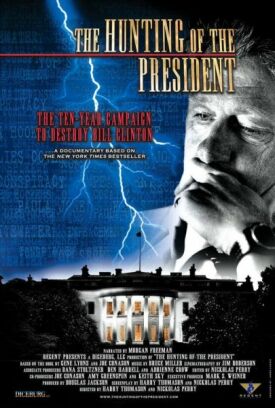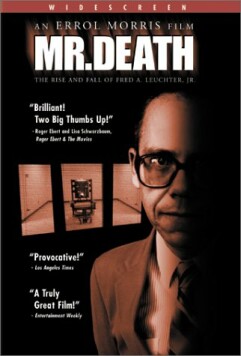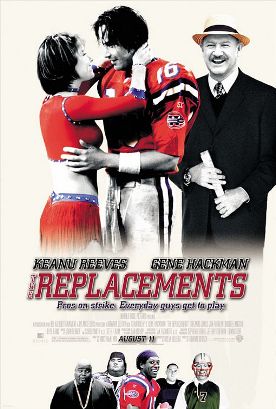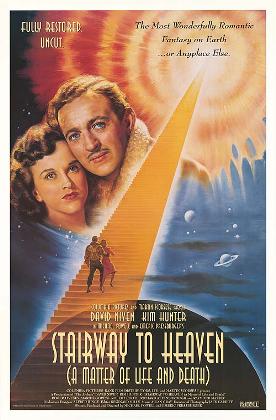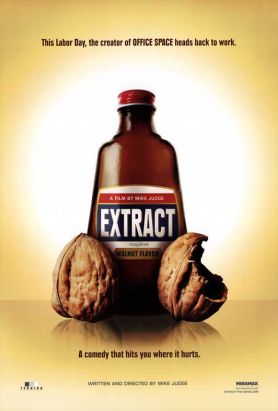Hunting of the President, The
This week I had the disorienting experience of attending screenings of Michael Moore’s Fahrenheit 9/11 and Harry Thomason’s and Nickolas Perry’s The Hunting of the President on the same day. The first portrayed the President as the incomprehensibly guilty mastermind behind a wicked conspiracy; the second portrayed the President as the incomprehensibly innocent victim of a wicked conspiracy. Which were we to believe? Oh, did I forget to mention that the president was in the first instance George W. Bush and in the second Bill Clinton? Thomason and Perry may actually be on the same page with Michael Moore, from whom they have clearly learned a lot — including the use of brief, sardonic clips from old movies and TV shows to illustrate ostensibly serious points.
In one case, for instance, a group of legal advisers to Paula Jones are characterized for no obvious reason as “elves,” then the term is illustrated by a dictionary’s definition of “elf” flashed on the screen — like we don’t know what an elf is? — then we see a black-and-white shot from what must be an old silent film of Santa’s helpers at work. Even by Michael Moore’s standards this is a pretty poor excuse for wit, and yet it is quite as subversive as a funnier jibe would have been of any seriousness of purpose we might otherwise be tempted to attribute to the film. This is a pity, because it really does have, underneath all the Clintonolatry and the partisan triumphalism a serious point to make.
Unfortunately, Thomason himself doesn’t seem to know what it is. He buries his lead in rehashing the by-now familiar details of the Whitewater investigations on the grounds, it is hinted, that all the investigations were linked as part of Mrs Clinton’s “vast right-wing conspiracy.” Yet apart from the less than earth-shattering news that Clinton’s fiercest critics tended to support each other, this conspiracy remains as shadowy as ever. For instance, the film introduces us to a young New Zealander called Andrew Cooper who once lived on the houseboat in Arkansas of one Everett Hamm, said to be a key figure in an organization called ARIA which was devoted to “bringing down” Bill Clinton. Cooper tells the camera that one night some men came on the houseboat for a meeting. He was pretty sure it was a meeting anyway, and therefore probably a meeting of ARIA. He can tell us nothing of who the men were or what they discussed or what, if anything, happened as a result of their discussions. Neither Hamm nor ARIA play any further part in the film’s account of the alleged conspiracy. But they sure looked conspiratorial.
The muddle is typical. The film begins with Senator Dale Bumpers addressing the Senate in Clinton’s impeachment trial and adapting H.L. Mencken to the effect that when people say it’s not about the sex, it’s about the sex. Yet the film itself stoutly insists that it was not about the sex but the sinister forces of “entrenched power” who only used a trivial instance of sexual misconduct to stage for political reasons what amounted to an attempted coup d’etat. This is getting into Michael Moore territory. I myself thought that the impeachment was spectacularly ill-advised, but it was unquestionably legal and constitutional — the only way in our separation-of-powers republic for the legislature to vote no-confidence in the executive.
My doubts were presumably what, back in 2001, prompted the Washington Post to ask me to review the book by Joe Conason and Gene Lyons on which this movie is based. Conason and Lyons made a tremendous stink about this at the time on the grounds that I also wrote for The American Spectator, which had run the original “Troopergate” article and other anti-Clinton pieces over the years. Guilt by association, I guess. But in their eagerness to discredit me they overlooked the point on which I was agreeing with them, and with the film — one at least as applicable to Michael Moore today as it was to those who attempted to “get” Bill Clinton in the 1990s.
In any healthy democracy, the elected leaders have a right to expect a certain degree of trust from the people who elected them, even from — perhaps especially from — those who did not vote for them themselves. The people’s business will never get done if those who are charged with doing it are constantly having to defend themselves from second-guessers and scandal-hunters out to make their political or journalistic fortunes by finding instances of criminal malfeasance to pin on them. James Carville — not a man with whom I often find myself in agreement — makes just this point in The Hunting of the President when he says that the Whitewater investigations which culminated in the exposure of the Monica Lewinsky affair really owed their existence to Watergate. Star-struck journalists filled with the sense of their own importance just couldn’t bear to let pass what must have seemed to them a chance to be the next Woodward or Bernstein.
Not surprisingly, neither Mr Carville nor anyone else in the film goes on to make what seems to me the obvious point that Mr Clinton’s successor is now being subjected to a degree of scandal-mongering by journalists that makes even the excesses of 1998-99 look pale by comparison. By all means, let him be turned out of office if we find that he has performed badly in it, but the assumption of bad faith made by presidential critics such as Mr Moore and those who cry up his loathsome, innuendo-laden movie only guarantee that the next Democratic president will experience retaliation in kind from some new generation of Republican “elves.”
Discover more from James Bowman
Subscribe to get the latest posts to your email.

